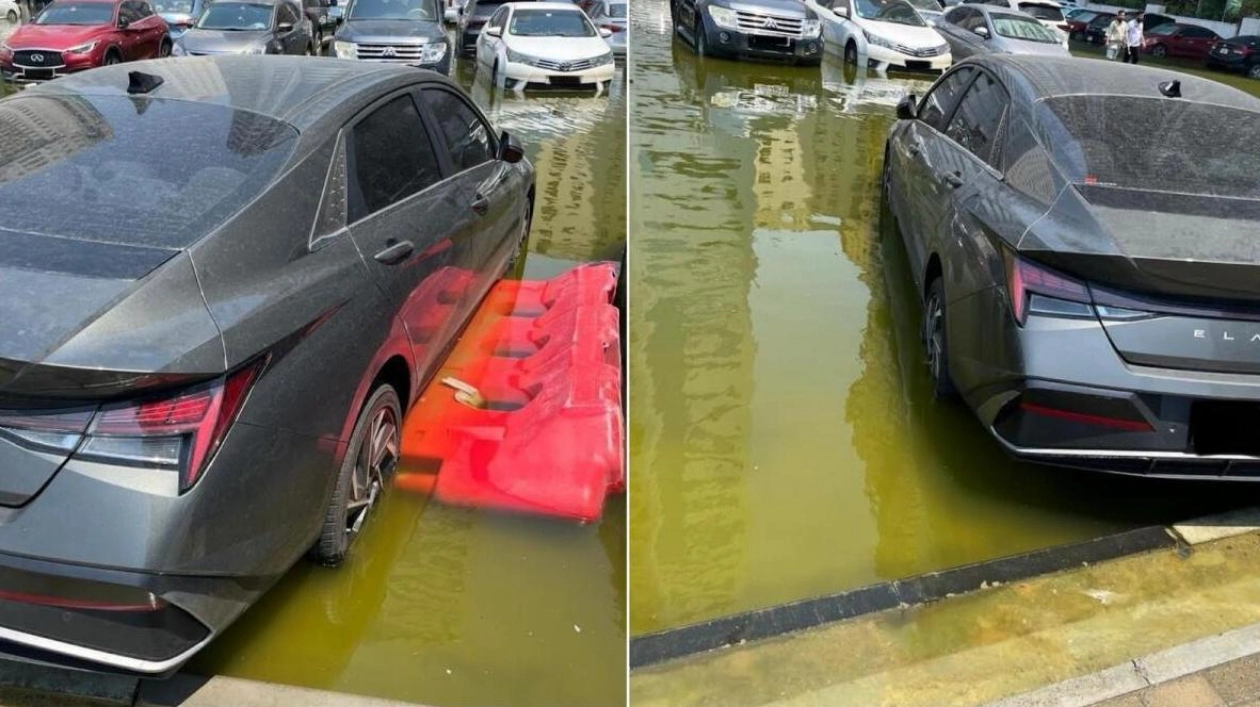Several UAE residents continue to grapple with the aftermath of their damaged cars, with repairs still pending three months after the unprecedented rains in April and the subsequent flooding that affected numerous vehicles across Dubai, Sharjah, and other emirates. The flooding led to complete submersion of cars in various areas, causing significant damage to vehicles and their owners. Those cars that insurers did not deem a total loss were sent to garages for repairs. However, garage operators are also finding it challenging to manage the influx of cars needing repairs from both insurers and individual owners.
Motorists who had comprehensive insurance plans saw their car damages covered under natural catastrophe coverage. Conversely, those with third-party insurance plans had to bear the cost of car repairs themselves. Osama Abdul Jaber, a 52-year-old Palestinian living in Dubai, shared the difficulties his family encountered. "Two of our cars were damaged," he recounted. While one car was repaired within a week, the other remains at the service shop. "The insurance initially refused to cover the Dh25,000 worth of damages," he detailed. "It took a month to get approval, and we've been waiting for spare parts ever since."
Hind, a 39-year-old Jordanian, also encountered issues with her car parked in the building basement. "When I tried to start it after the floods, nothing happened," the English teacher explained. She consulted seven mechanics, all of whom faced challenges with parts availability. "They all said the water had damaged the engine," she added, as her car remains temporarily parked in the industrial area.
Both residents described the extensive damage. "The car's computer and traction system were completely destroyed (with water)," Jaber stated. Hind elaborated, "Water leaked into the engine, and opening it was impossible." The insurance and repair delays significantly disrupted the Jaber household. "It took a month to get the insurance approval and the delay disrupted our routines. Me, my wife, and son work in three different cities, and my daughter goes to university, so we all need cars."
The aftermath of the flooding has left many residents in a challenging situation, trying to reconcile the need for a functional vehicle with the high costs and scarcity of essential parts. Hind now relies on Uber for daily commutes. Expressing her frustration, she said, "My routine remains disrupted. The increased cost of Uber rides and the inconvenience of multiple trips for errands have constrained my mobility and daily activities."
Favas EM, managing director at Al Asli Auto Maintenance, noted, "Three months after the flood, even today we receive several calls from customers inquiring about repairing cars affected by the water." Many cars are still awaiting repair due to the shortage of spare parts. Most spare parts warehouses are located in Jebel Ali, one of the most affected areas. Companies have recalled the spares, leading to most dealers being in short supply, thereby creating increased demand with limited supply.
Favas further highlighted a specific issue with certain brands. "Once water has entered these vehicles, their electrical parts, including the fuse box, are damaged, necessitating the replacement of the entire electrical system, which is not affordable for many. Replacing a fuse box for a hefty amount in a second-hand vehicle is forcing the owners to sell the vehicle at very low prices." The aftermath of the flooding has left many residents in a challenging situation, trying to balance the need for a functional vehicle with the high cost and unavailability of essential parts.






